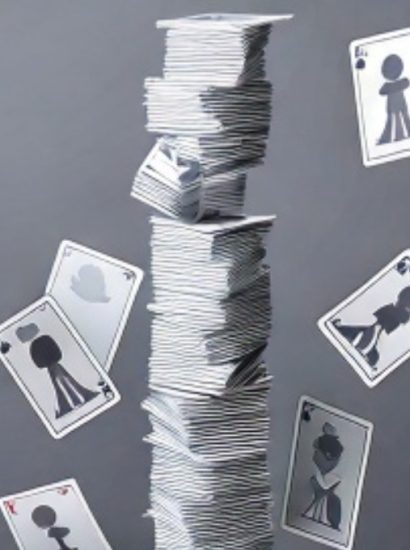This post is also available in: ΕΛΛΗΝΙΚΑ (GREEK) TÜRKÇE (TURKISH)
When Nikos Christodoulides announced in June 2023 at a Famagusta exhibition opening that he had received a “very important phone call” and hinted at developments involving EU engagement at the highest level, he was effectively setting the tone for his foreign policy approach: he would have no qualms about hitching the Cyprus issue to his image-building wagon.
Leaks in the following days sustained this narrative, incorporating figures such as Angela Merkel and Michel Barnier. It was completely untimely, given that no negotiations were even taking place, yet absolutely necessary for the profile he sought to build. This pattern would be maintained consistently thereafter.
Whenever he found a microphone, he delighted in making headlines, transforming himself into an absolute showman. This was evident at the anti-occupation event in Deryneia last August, when he rushed to reveal an agreement for a trilateral meeting on Cyprus before the UN had announced anything. Tatar denied it, the UN remained silent, and the meeting was eventually postponed by two months.
At the altar of this new diplomatic success that would bring about the resumption of talks, he sidelined diplomatic institutions. He urgently needed a narrative that would overshadow the government’s massive domestic policy deficits and would “impose” the image of a formidable leader.
In this narrative, realities never posed an obstacle. Instead, they were adapted to fit it. This occurred after the meeting with Biden at the White House, which, according to the government, elevated relations between the two countries to new levels. When some pointed out that while significant, its practical benefits had a ceiling given that Biden’s post-election presence was far from guaranteed, the Christodoulides government had an answer ready.
This came through a revelation by the government spokesman about a meeting the President had with a close Trump associate, during which they allegedly discussed potential candidates for Secretary of State should Trump be elected. The identity of this associate was never revealed, nor did it matter. What mattered was projecting the image of a President who was ahead of events and whose opinion was so important that it was sought even for picking America’s future Foreign Secretary.
Every event, real or fabricated, was presented in a way that magnified his image. He elevated a handshake, a coffee, or a casual conversation (such as those with Erdogan, Fidan, and Guterres) to summit meetings, during which he transformed Cyprus into a country with significant role and influence.
This brings us to the present, when Nikos Christodoulides decided to position himself as a mediator in the Israel-Iran dispute. The government announced that Iran had asked Cyprus to convey a message to Israel, only for Iran to officially deny this in the most formal manner possible.
Once again, the scenario was identical. Christodoulides’ Cyprus, being a thousand times larger than its shadow, emerged as a significant player in developments. Such was the country’s regional role and so decisive its relationship with Israel that Iran rushed to seek our assistance. And such was our influence that we would respond accordingly.
The problem was that this time the consequences were immediately visible, which our reaction after the denial only magnified. The government implicitly accused Iran of lying. “In cases of war, the first casualty is truth,” said the assistant government spokesman. However, the first casualty was once again credibility.
Many wonder how Nikos Christodoulides, a former diplomat, can operate so far outside diplomatic institutions with such irresponsibility. How can he rush to pre-empt the UN and announce something that should have been announced by the organisation leading the Cyprus effort, involve individuals (without their consent) in his own games, or worse still, create conditions where other states are forced to contradict us?
The answer lies in how Christodoulides handles everything – through communication gimmicks and terms of domestic consumption, whether concerning domestic or foreign policy. Politics is conducted on the basis of announcements and parallel to realities, aimed at shaping a virtual reality.
The question is whether he has reached the point of believing this virtual reality he cultivates without limits, or whether he recycles it believing he is building the profile of a great leader for himself. Whatever the case, as the Iran incident demonstrated, it matters little. In his effort to serve his image by any means necessary, he traps both himself and the country in a vicious cycle of self-confirmation from which escape is impossible.
This is what has ultimately made him so dangerous – the fact that he is completely detached from reality, or at a point where realities barely affect him anymore. Such is his fixation on image that he appears to have run out of perception and, crucially, perspective. A person who experiences realities in his own absolute way, with image as the sole criterion, cannot possibly address them. And a person who does not address realities cannot possibly avoid failure.
This article was first published on 22.06.2025






